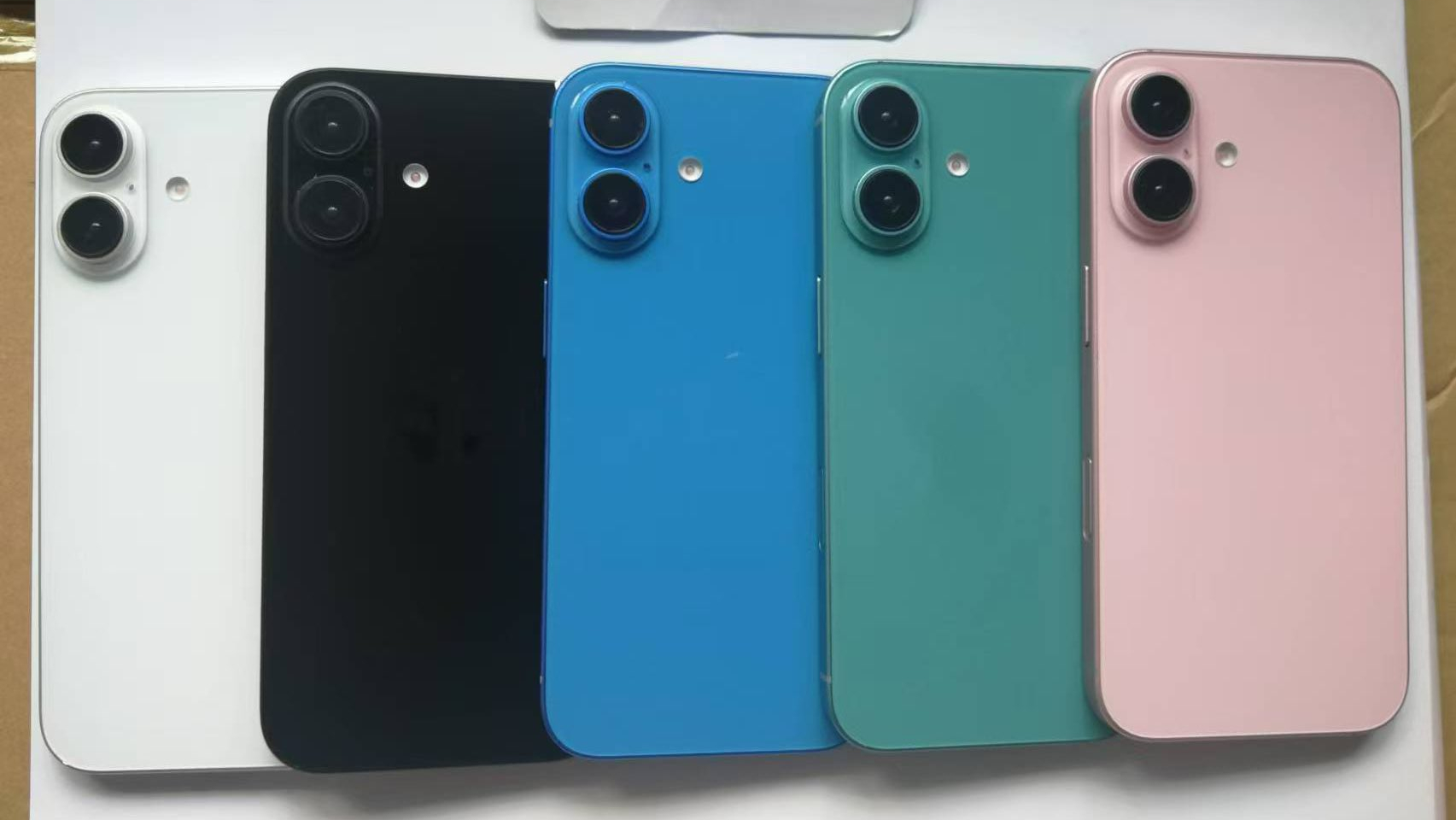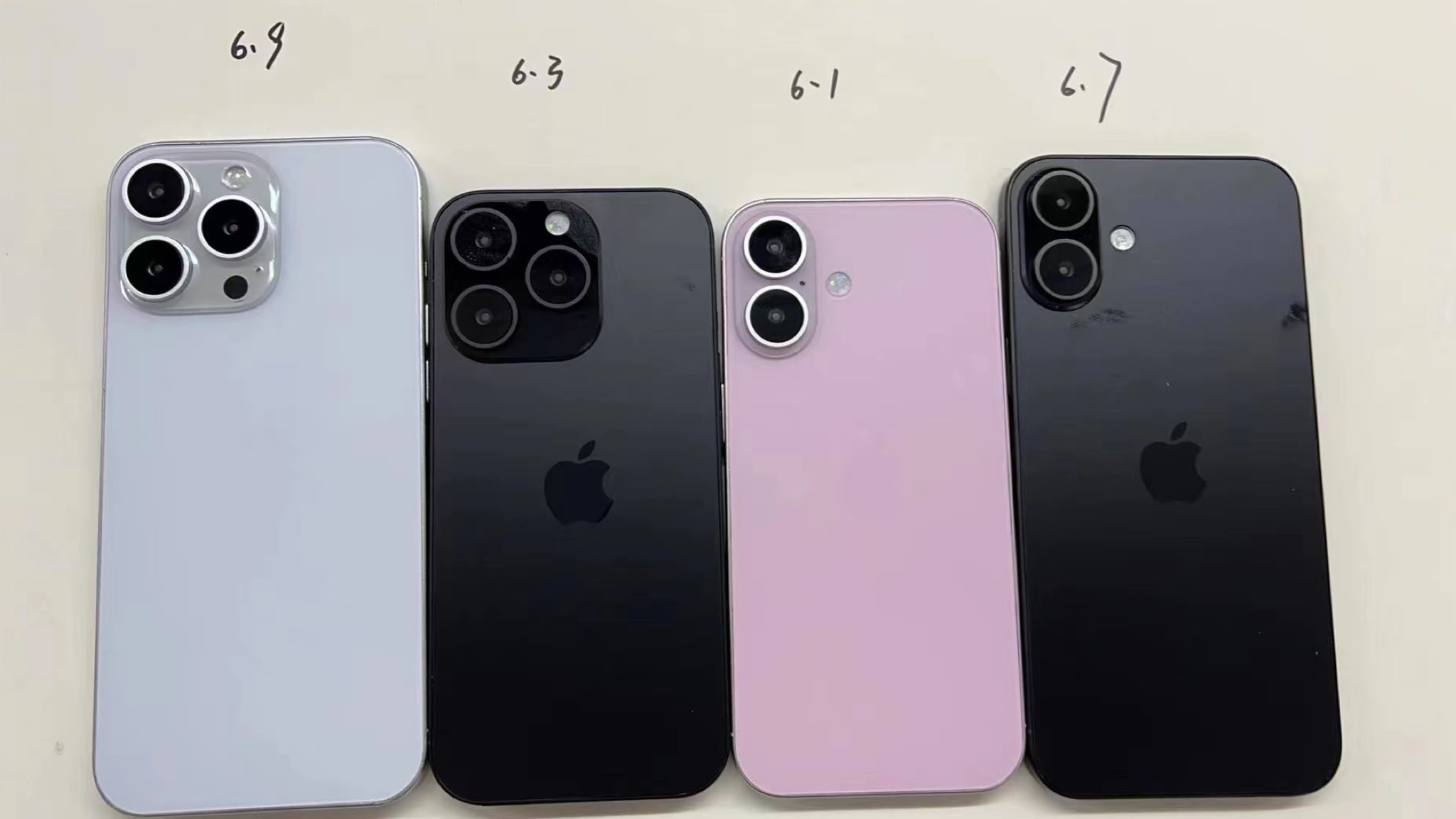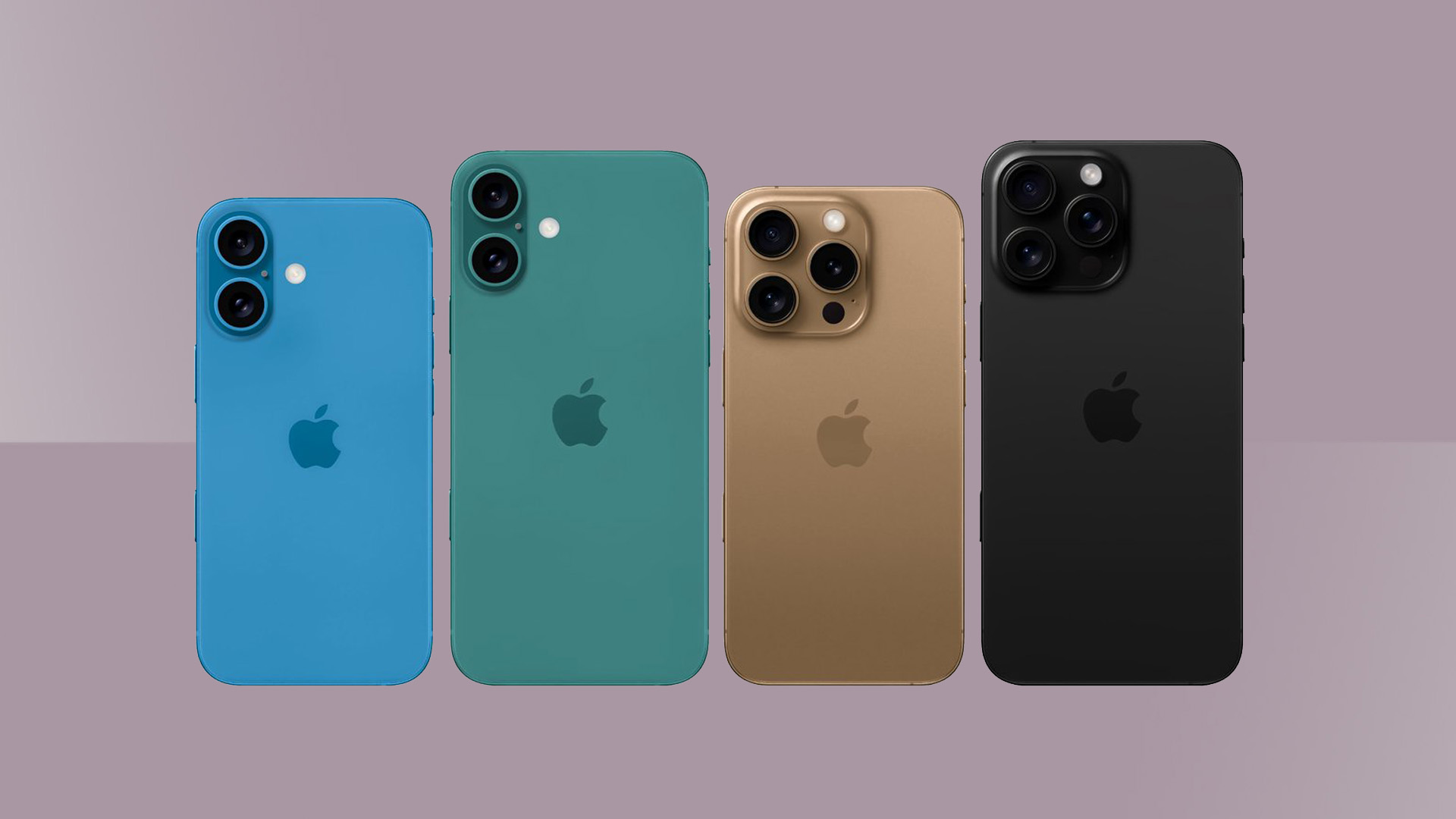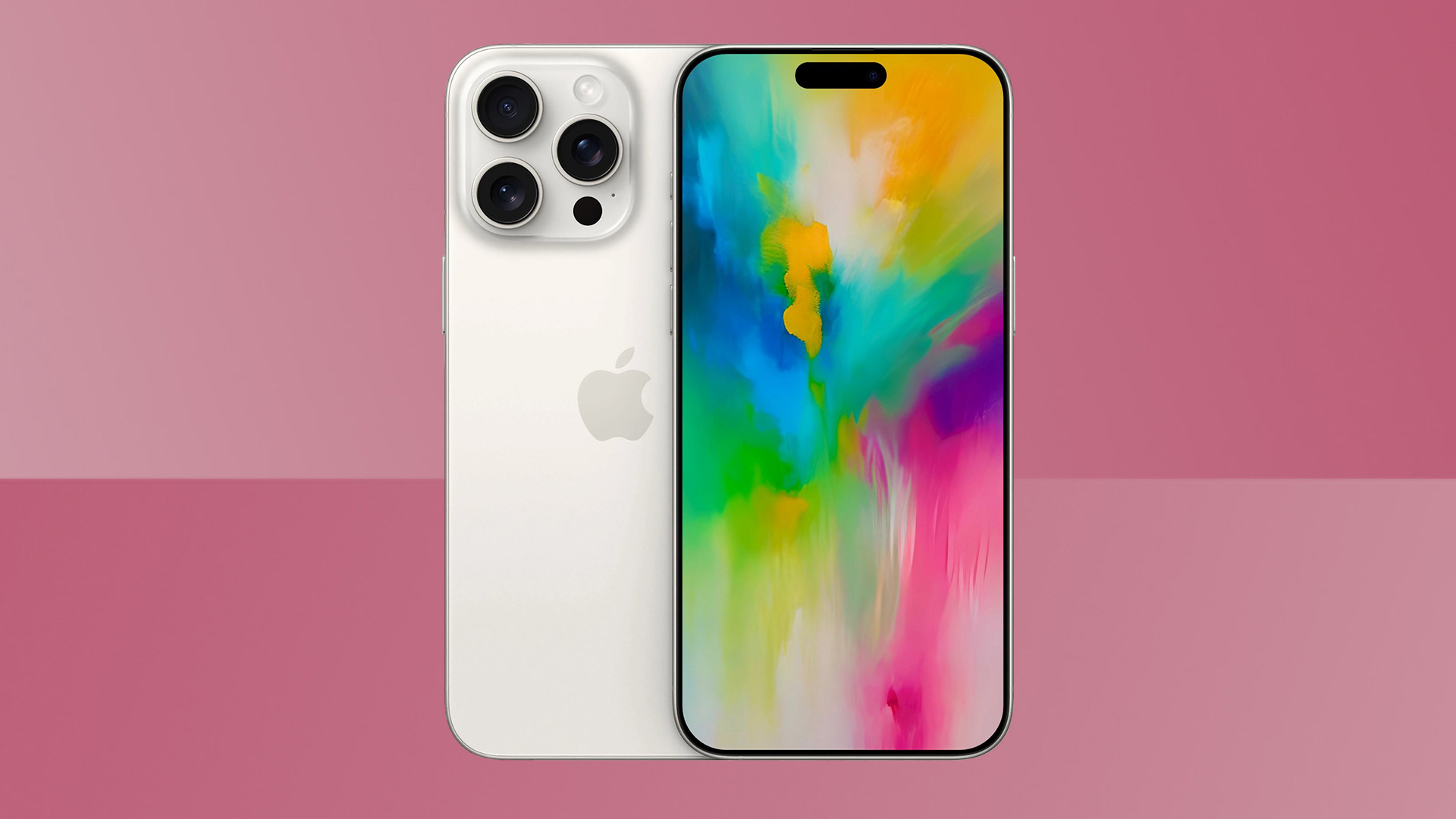
The launch of a new iPhone is the biggest event in consumer tech. While there are other high-profile launches throughout the year, the iPhone gets more attention than any other device, with millions tuning in to follow the action. We're now just days away from the expected announcement – and the excitement has reached fever pitch.
The iPhone 16 launch will be more significant than the last couple of updates, because we're moving into a new era of AI devices. Apple outlined what Apple Intelligence could do at its WWDC 2024 conference, and showcased what was coming with iOS 18 – but, as ever, nothing official has been said about the iPhone 16 just yet.
The sun is going down on the iPhone 15, the iPhone 15 Plus, the iPhone 15 Pro and the iPhone 15 Pro Max. While these phones will be around for years to come, their time in the spotlight is about to come to an end. We've been following iPhone leaks and rumours for many months – so here's everything you need to know about what to expect from the new iPhone 16.
Apple iPhone 16 and 16 Pro: At a glance
Here are the essential details you need to know, with a lot more information further below:
- Dates: 9 September announcement; 13 September pre-order; 20 September general on-sale
- Prices: iPhone 16 Pro could see a £100/$100 increase
- Design: Action Button on all models; new Capture Button
- Display: 6.3in Pro, 6.9in Pro Max; slimmer bezels
- Specs: A18 chip for iPhone 16; A18 Pro for iPhone 16 Pro and up
- Camera: iPhone 16 ultrawide to f/2.2; Pro gets 5x optical; Pro and Pro Max new 48MP ultrawide
Apple iPhone 16 release date
Apple has confirmed that its next Special Event will be revealed on 9 September 2024. The event will be livestreamed from Apple Park in Cupertino, California and you'll be able to watch along online.
That's just the iPhone 16 series' predicted announcement, though. Pre-orders for the new models will follow on 13 September – if Apple sticks to previous launch schedules, anyway – with the release date likely to then be a week later. That could see the new iPhone 16 in your hands on 20 September 2024.
How much will the iPhone 16 cost?
Apple devices are expensive, there's no getting away from that – and nothing is expected to change for the new iPhone 16 models. At the same time, Apple has been fairly consistent with its pricing through the last couple of models. These are the prices we expect to see for the iPhone 16 models:
- Apple iPhone 16: £799 / $799 / AU$1499
- Apple iPhone 16 Plus: £899 / $899 / AU$1649
- Apple iPhone 16 Pro: £1099 / $1099 / AU$1999
- Apple iPhone 16 Pro Max: £1199 / $1199 / AU$2199
These prices are in line with the iPhone 15 models, but there has been chatter that the iPhone 16 Pro could be $100 more expensive – because it might lose the 128GB configuration that's currently the most affordable, as well as benefit from a new camera.
That might not happen, of course, it could be that the iPhone 16 Pro sticks to the £999 / $999 / AU$1849 price that the iPhone 15 Pro launched at.
How many iPhone 16 models will there be?

It's expected that Apple will stick to the established pattern and give us an iPhone 16, iPhone 16 Plus, iPhone 16 Pro and iPhone 16 Pro Max for the 2024 line-up. That will follow the lead of the iPhone 15 series.
There have been rumours about a new iPhone SE 4th Generation, but this isn't expected to launch until Spring 2025. That will then slot into the affordable iPhone position.
Elsewhere, rumours have swirled for some time about an iPhone Ultra, followed by an iPhone Slim, which has now landed as the iPhone Air. That's unlikely to make its debut this time around, instead launching as the iPhone 17 Air in 2025. That may also see the end of the iPhone Plus.
Will the iPhone 16 design change?
The iPhone 16 models will generally look like the iPhone 15 models that they replace, but there are some key design changes to be expected.
Firstly, it looks like the iPhone 16 and iPhone 16 Plus will have a redesign of the camera housing. This will move to a vertical design, making it more compact on the rear of the phone and moving away from that square design. That will see the LED flash move onto the body of the phone.
It's also expected that the mute switch will be replaced with the Action Button – the same one which made its debut on the iPhone 15 Pro – and bring parity to the functionality across these devices.
That's not the only button change we're going to see, because it's also rumoured that Apple is going to introduce a Capture Button. This is said to be a pressure-sensitive mechanical button, designed to operate the camera, like the button that Sony has used for some time on its Xperia models.
The details are a little uncertain here: some say it will come to all iPhone 16 models, but the positioning of the button appears to be where the mmWave antenna is placed (for 5G connectivity), so there will have to be some rearrangements to accommodate it.
Whether the Capture Button comes to the iPhone 16 and 16 Plus as well as the Pro models remains to be seen.
iPhone 16 and 16 Pro colours

The iPhone 15 and iPhone 15 Plus is currently offered in Pink, Yellow, Green, Blue and Black, with most of those colours being pastels. The iPhone 16 could come in Pink, Green, Blue, Black and White, according to leaked dummy units.
The iPhone 15 Pro and Pro Max comes in Natural Titanium, Blue Titanium, White Titanium and Black Titanium. The iPhone 16 Pro and Pro Max are expected to come in Natural Titanium, Black Titanium, White Titanium and Desert Titanium, which is a new gold colour – and the choice pick for T3's Tech Editor, too.
iPhone 16 display changes
We're expecting some iPhone 16 display changes to shake things up for the new phones. The iPhone 16 is expected to continue with a 6.1-inch display, while the iPhone 16 Plus is expected to keep the 6.7 inch display, according to rumours.
But the iPhone 16 Pro is expected to shrink the bezels and move to a 6.3-inch display, increasing the size over the iPhone 15 Pro. That's also expected to be reflected in the iPhone 16 Pro Max, with rumours that it's going to increase to a 6.9-inch display, over the 6.7 inches of the iPhone 15 Pro Max. Again, this is mostly achieved through reducing the bezels, but there may also be some growth in the overall size of the Pro devices.
It's thought that the iPhone 16 will keep a 60Hz display, while the iPhone 16 Pro models will continue with a 120Hz ProMotion technology.
There are also rumours that the brightness of the Pro models is going to be increased. Currently the typical and peak brightnesses of the iPhone models are way behind the likes of Samsung and Google flagships (at 2600 and 3000 nits respectively). The details suggest an increase in standard brightness to 1200 nits, while there's also been talk of Micro Lens Array (MLA) tech that's used in the latest OLED televisions.
iPhone 16: Key specs

The iPhone 14 made a big change to its offering, moving the new Pro models to the A16 Bionic chip, while the standard models stayed in the A15 Bionic. This created a two-tiered structure that was repeated with the iPhone 15 models (on A17 Pro and A16 Bionic).
It could be time for a change, however, with all the iPhone 16 models running an A18 chip. That's likely to come in two configurations, with the iPhone 16 Pro models running the A18 Pro, while the standard models get the A18 chip. That should give all the models the power to run Apple Intelligence, which isn't going to be available on the iPhone 15 and iPhone 15 Plus, because the A16 Bionic isn't powerful enough.
We may also see a bump in RAM across the board to support AI functions, but Apple doesn't talk about RAM levels in its phones. Regardless, it's expected that thanks to the launch of Apple Intelligence there's likely to be closer parity in the power that all the iPhone 16 models offer.
There could also be higher-capacity batteries in the new models. Again, Apple doesn't disclose battery capacity, instead talking about battery life – but I'd expect any increase in battery to accommodate the demands of on-device AI, rather than making any huge change to performance.
There could be a boost to 40W wired charging for the iPhone 16 Pro and a move to 20W wireless MagSafe charging, although Apple has been reluctant to increase charging speeds in the past.
It's also expected that WiFi 7 will be supported on the iPhone 16 models.
iPhone 16 camera changes
I've already mentioned that the iPhone 16 and iPhone 16 Plus will get a new camera layout and this could be to place these two cameras together to support stereoscopic capture. That would allow data from both sensors to create Spatial Video, which is one of Apple's selling points of Apple Vision Pro.
Elsewhere, I'm not expecting huge changes to the cameras offered, with the main 48-megapixel main camera staying the same on the iPhone 16. The ultrawide lens could be adjusted, however, increasing the aperture to f/2.2 over f/2.4 of the iPhone 15 for better low-light imaging. It's also expected to support macro shooting.
The iPhone 16 Pro could be in for a boost, however, getting the 5x optical telephoto lens that had previously been the preserve of the 15 Pro Max. The main cameras are expected to stay at 48-megapixels, but the Pro models will see the ultrawide camera move to a 48-megapixel sensor too.
It's also said that Apple will introduce a new image format, JPEG-XL, which many see as the replacement for current JPEG image formats.







